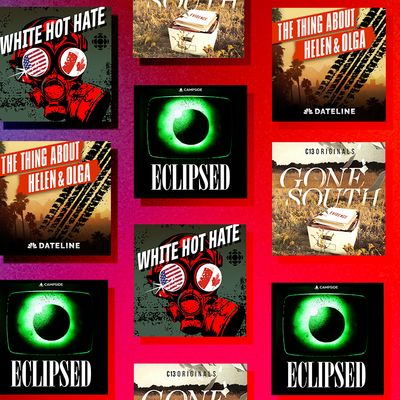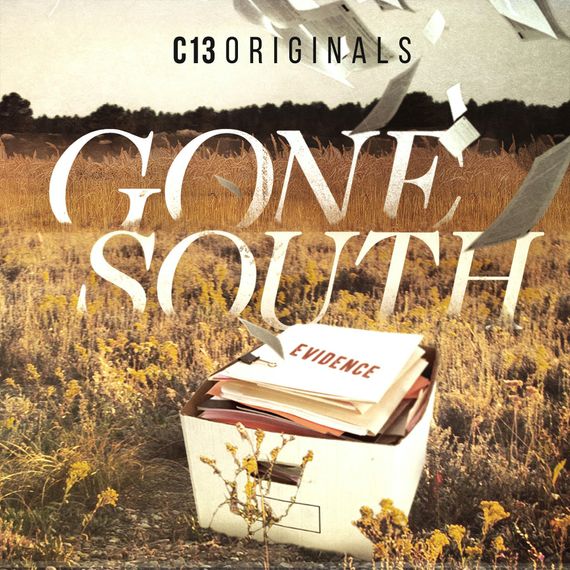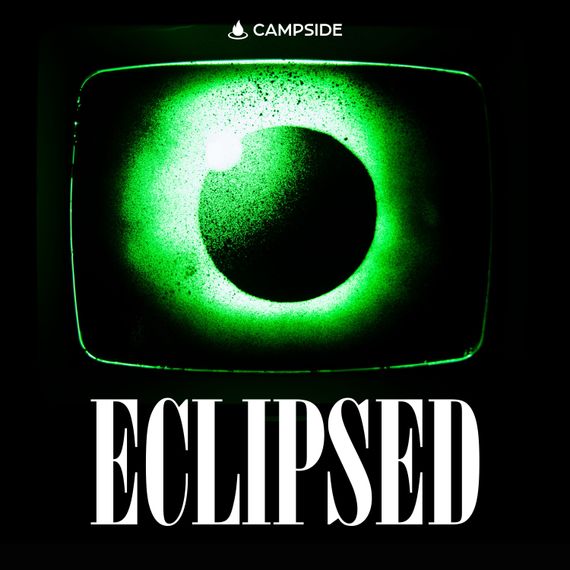
The true-crime-podcast universe is ever expanding. We’re here to make it a bit smaller and a bit more manageable. There are a lot of great shows, and each has a lot of great episodes, so we want to highlight the noteworthy and the exceptional. Each week, our crack team of podcast enthusiasts and specialists picks its favorites.
The Thing About Helen and Olga
Helen Golay and Olga Rutterschmidt are two elderly women in Los Angeles who ran insurance scams by preying on men who struggled with housing instability and/or mental illness and addiction. At first, this dynamic duo must have seemed like heaven-sent angels to the men, offering food and shelter in exchange for personal information that they’d then use to take out numerous small life insurance policies on their victims — although their persistence definitely weirded out one almost-victim, Jimmy Covington, who later went on to testify against them in their murder trial. Eventually, their fraud caught up with them, and both are serving hard time in separate prisons in California. And, look, these are terrible people committing cruel crimes, but I could absolutely not get Lili Hayes, the angry TikTok mom, out of my head every time I heard Olga.
The six episodes, which dropped en masse earlier this week, are the audio equivalent of a Dateline special; it’s not clear how many of the interviews are new or from a previous story Morrison did on the two, but it’s pretty smart to repackage older stories for a new format. The eternal popularity of Morrison and Dateline has created a sort of ouroboros of true-crime media that’s grown to include podcasts that recap the show, like A Date with Dateline and the occasional True Crime Obsessed. I’m not complaining! —Jenni Miller
Gone South, “Concerned Citizens”
St. Tammany Parish, Louisiana, is one of those places you hear about on crime television shows. It’s a safe, affluent, “no one locks their doors” place across the river from New Orleans. In other words, it’s a prime location for a murder. In 1987, Margaret Coon, a lawyer and former prosecutor, was stabbed to death while walking her dog (an Afghan hound named Charlene) in a gated community in St. Tammany. Thrity-four years later, her case remains unsolved, and now journalist Jed Lipinski is examining why, and exploring the possibilities of finding the responsible party (or parties).
In episode four, Lipinksi tracks the efforts of Margaret’s father, Webster Coon, in trying to learn what happened to his only child. After years of pondering whether it could be a serial killer, someone Margaret had prosecuted, or an utterly random crime, an FBI profile revealed something shocking about the murderer’s identity, namely that it could be someone very close to Margaret, someone deeply entwined with law enforcement in the parish, which as you might guess, was teeming with unflattering secrets of its own. —Chanel Dubofsky
Eclipsed, “Pop Stars Go to War: Episode 1: The Moon and the Pop Stars”
This new production from Campside Media, executive produced and hosted by Bijan Stephen, isn’t really a true-crime podcast — but it does open with a killing. The aim of Eclipsed is simple yet compelling: to shed new light on old stories that were overlooked or, rather, overshadowed by a bigger historical event. This first series of episodes centers around the death of 1960s Australian pop star Cathy Wayne, who was shot on an American Marine base during the Vietnam War, while there to entertain soldiers. Wondering why you’ve never heard of the bizarre circumstances surrounding Wayne? Well, it’s mostly likely because it happened the same day as the moon landing. What initially seems like a straightforward story about a shooting death becomes a larger look at the landscape of pop music in Australia in the 1960s, with firsthand interviews from people who were there. I’m sure Stephen will eventually get to the who’s, why’s, and how’s of Wayne’s death — which deserves its due — but I’m also enjoying the detour into the history of a musical genre I know absolutely nothing about. —Amy Wilkinson
White Hot Hate, “The “Network Administrator”
When a white-supremacist organization known as the Base, started recruiting in Manitoba, Canada, a Winnipeg Free Press reporter named Ryan Thorpe infiltrated it. What happened next is documented in White Hot Hate, hosted by Michelle Shephard, a Canadian national security journalist. In episode five, we meet Roman Wolf, the founder of the Base, and the man responsible for recruitment and for recording more than 100 hours of interviews he did with potential members, including the post-vetting debriefs, in which people are deemed appropriate for the group. Shephard traces Wolf’s (a former U.S. military contractor named Rinaldo Nazzaro and self-proclaimed “family man) beginnings at Villanova University, where he was part of a student socialist organization, to Russia, his location when she interviews him. It’s a dizzying conversation about funding, his role in the U.S. military, fellow Base members who are now in jail, as well as the group’s pro-white ideology. Things deteriorate as Nazzaro insists there’s no link to be made between the Base, Al Qaeda, or Nazis, and the organization is more of a prepper network than anything else and not designed to precipitate violence, while recruits brag about their personal caches of weapons and plan attacks. —Chanel Dubofsky





